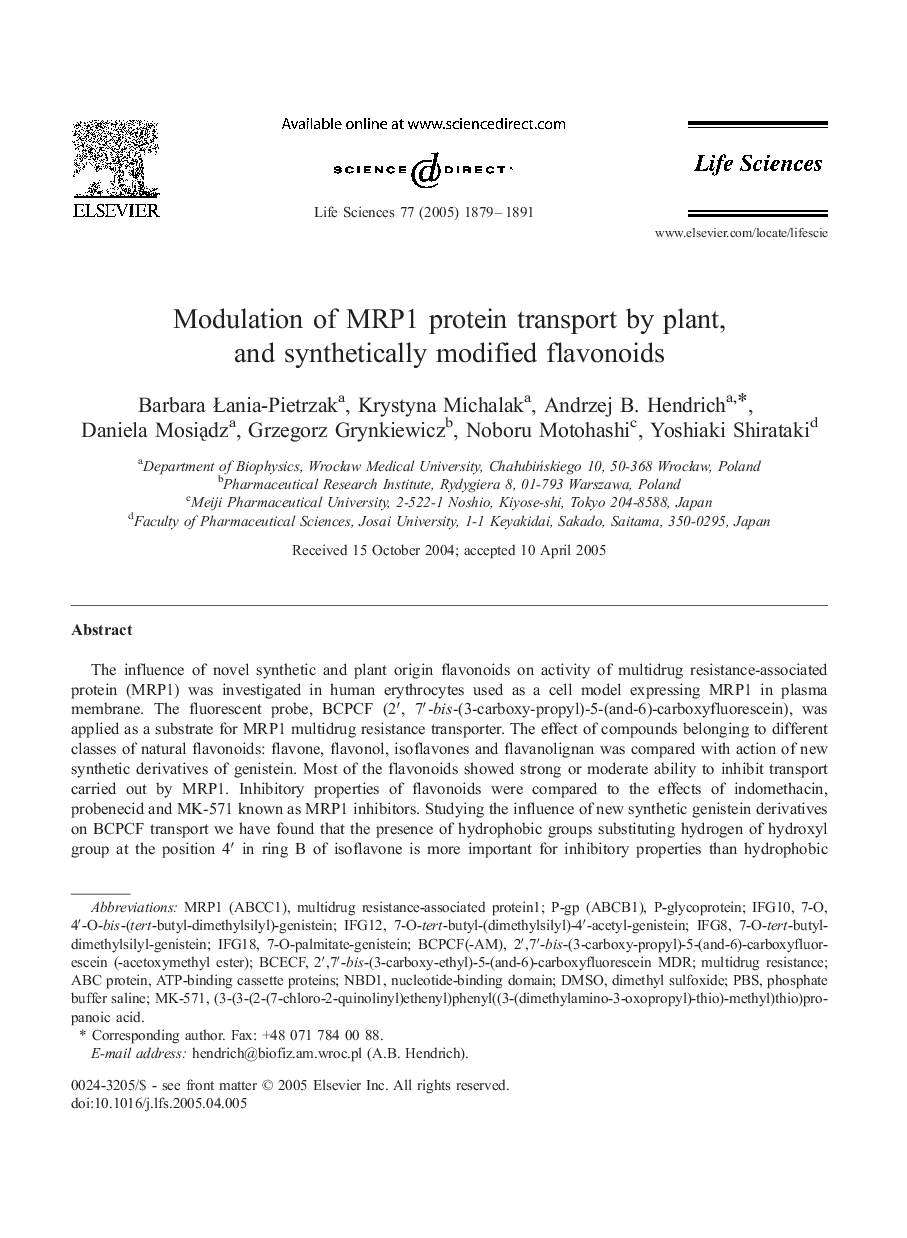| Article ID | Journal | Published Year | Pages | File Type |
|---|---|---|---|---|
| 9012629 | Life Sciences | 2005 | 13 Pages |
Abstract
The influence of novel synthetic and plant origin flavonoids on activity of multidrug resistance-associated protein (MRP1) was investigated in human erythrocytes used as a cell model expressing MRP1 in plasma membrane. The fluorescent probe, BCPCF (2â², 7â²-bis-(3-carboxy-propyl)-5-(and-6)-carboxyfluorescein), was applied as a substrate for MRP1 multidrug resistance transporter. The effect of compounds belonging to different classes of natural flavonoids: flavone, flavonol, isoflavones and flavanolignan was compared with action of new synthetic derivatives of genistein. Most of the flavonoids showed strong or moderate ability to inhibit transport carried out by MRP1. Inhibitory properties of flavonoids were compared to the effects of indomethacin, probenecid and MK-571 known as MRP1 inhibitors. Studying the influence of new synthetic genistein derivatives on BCPCF transport we have found that the presence of hydrophobic groups substituting hydrogen of hydroxyl group at the position 4â² in ring B of isoflavone is more important for inhibitory properties than hydrophobic substitution at the position 7 in ring A. In case of naturally occurring isoflavones the replacement of hydrogen at position 4â² by hydrophobic ring structure seems also to be favourable for inhibition potency.
Keywords
Related Topics
Health Sciences
Medicine and Dentistry
Cardiology and Cardiovascular Medicine
Authors
Barbara Åania-Pietrzak, Krystyna Michalak, Andrzej B. Hendrich, Daniela MosiÄ
dz, Grzegorz Grynkiewicz, Noboru Motohashi, Yoshiaki Shirataki,
